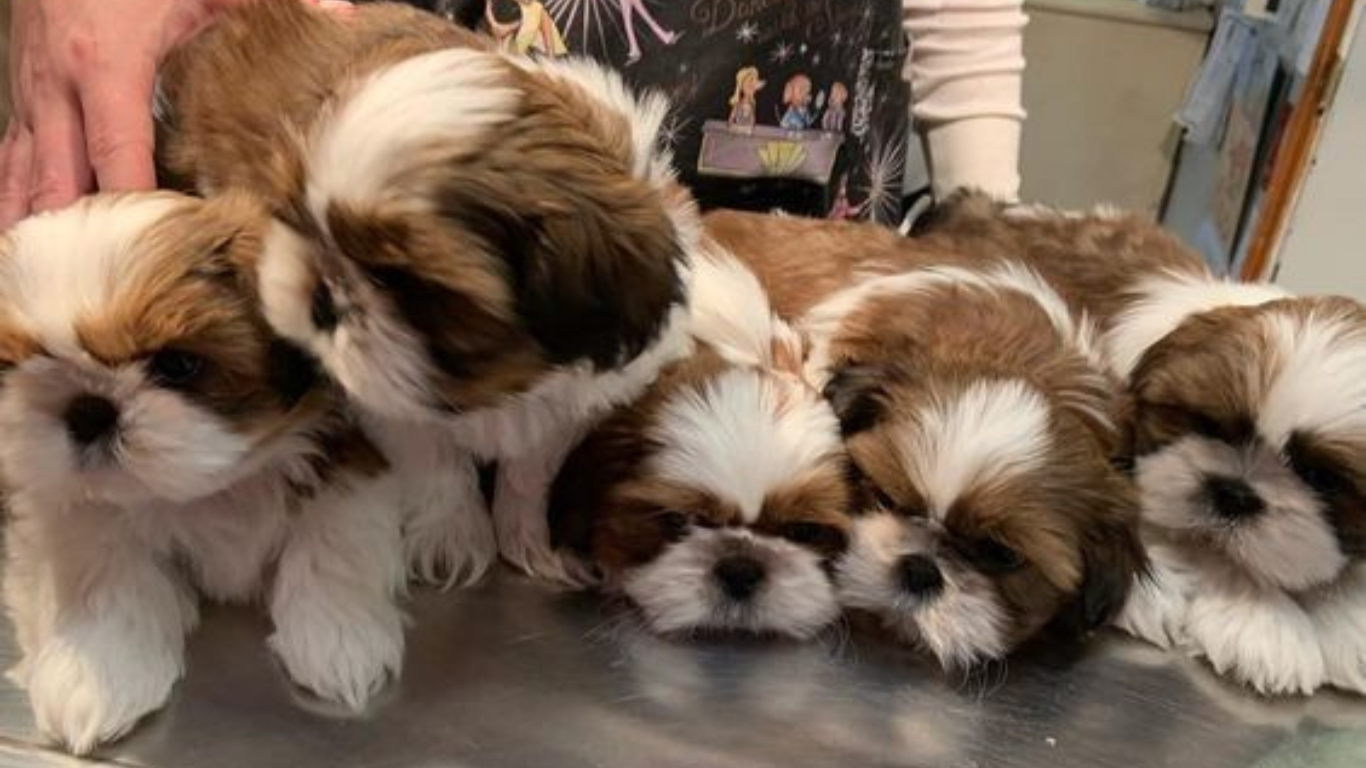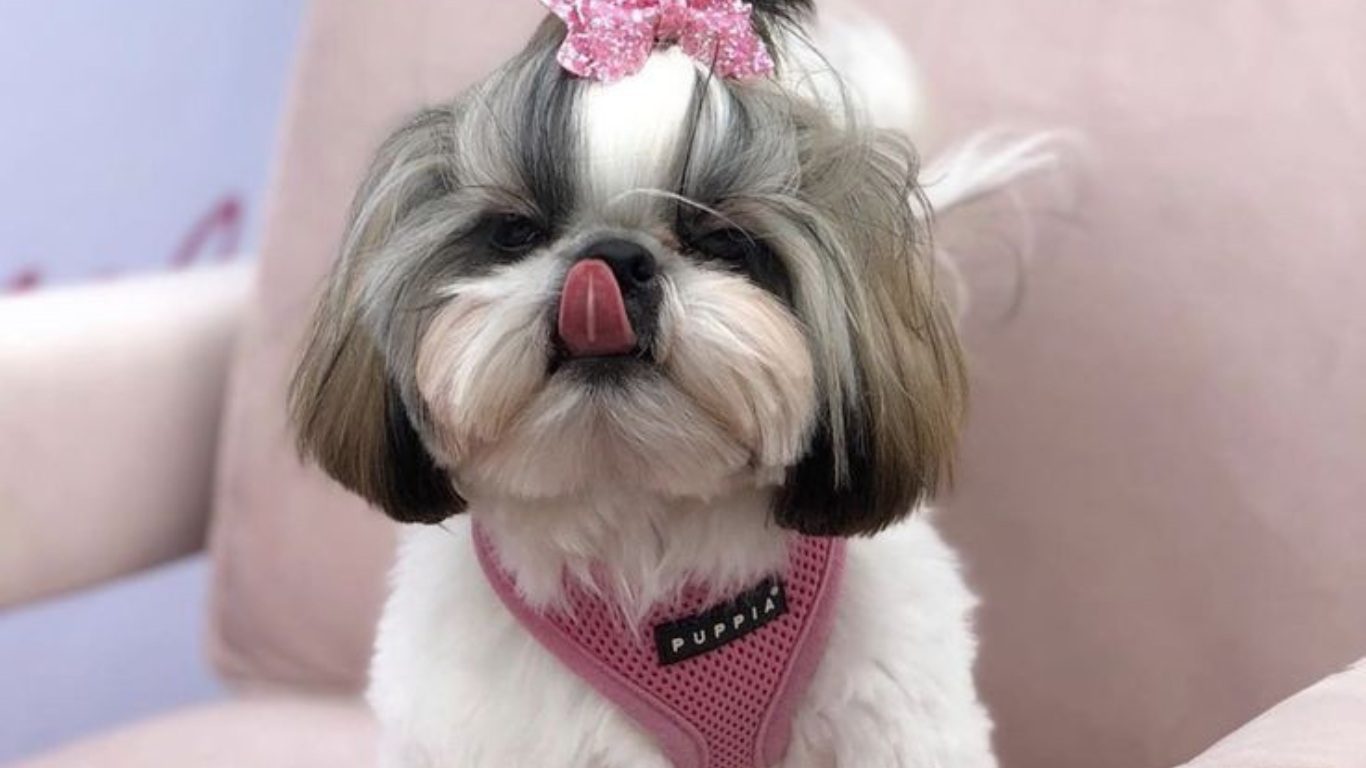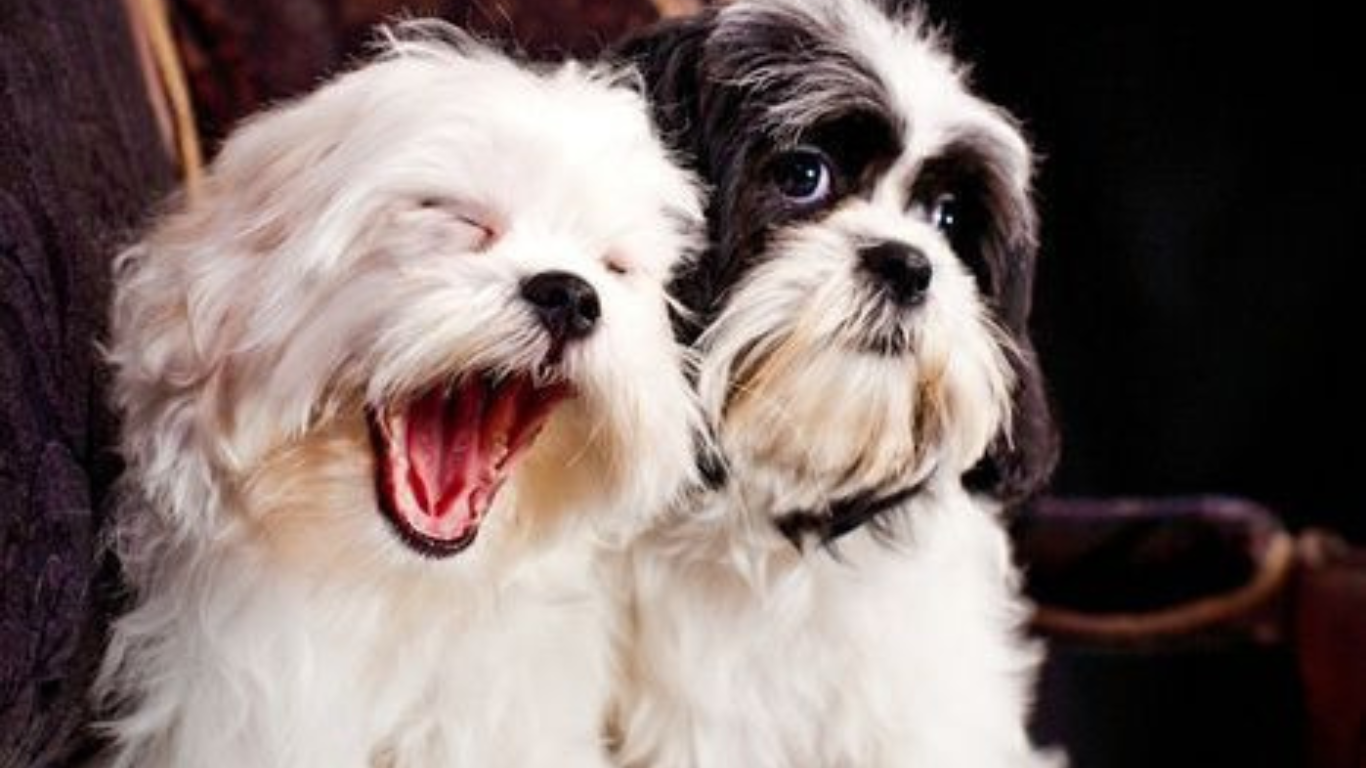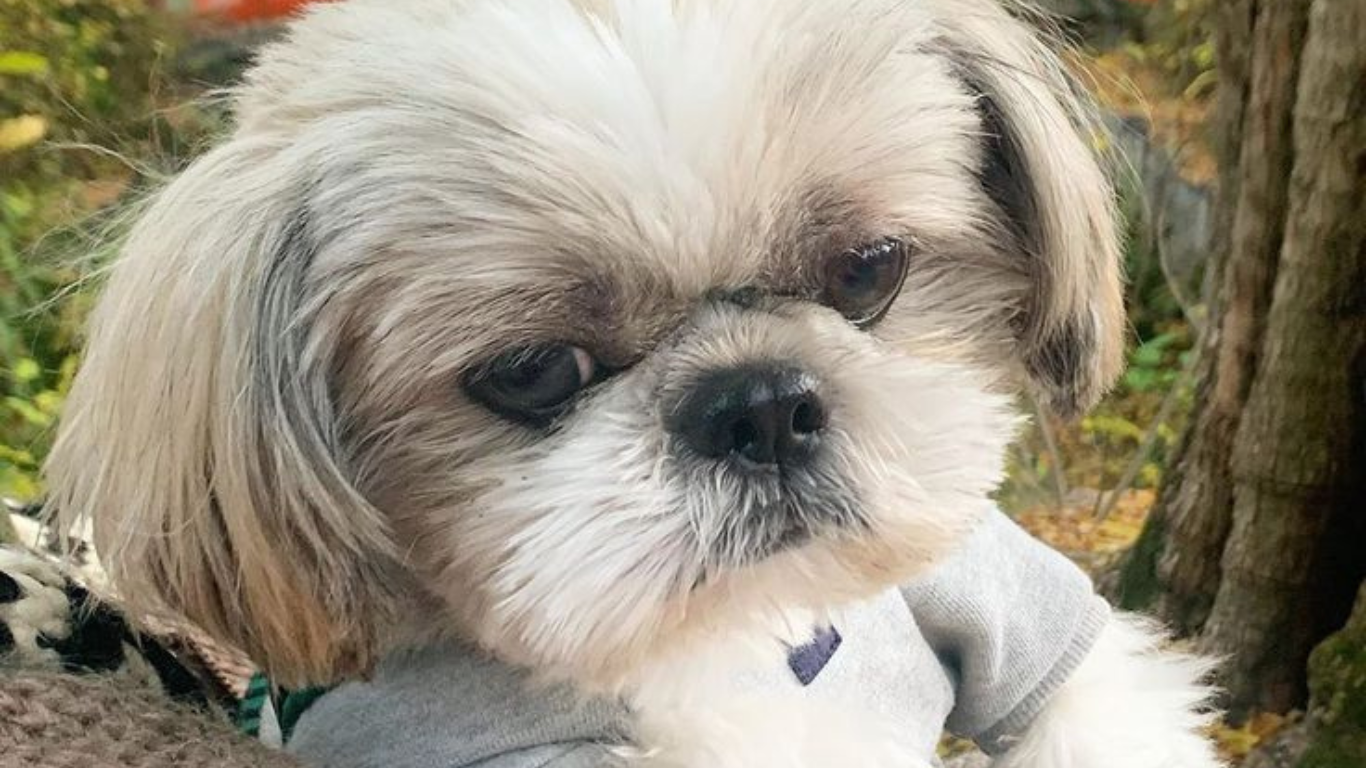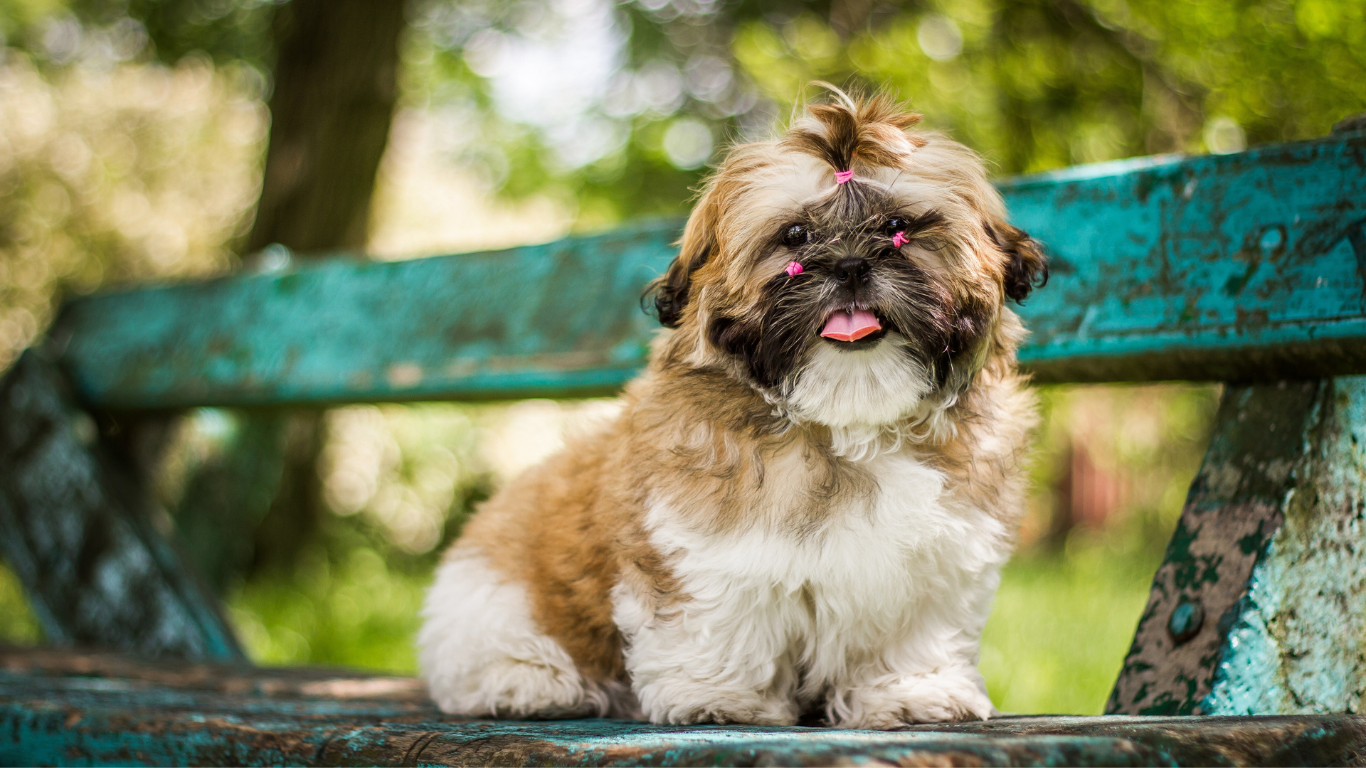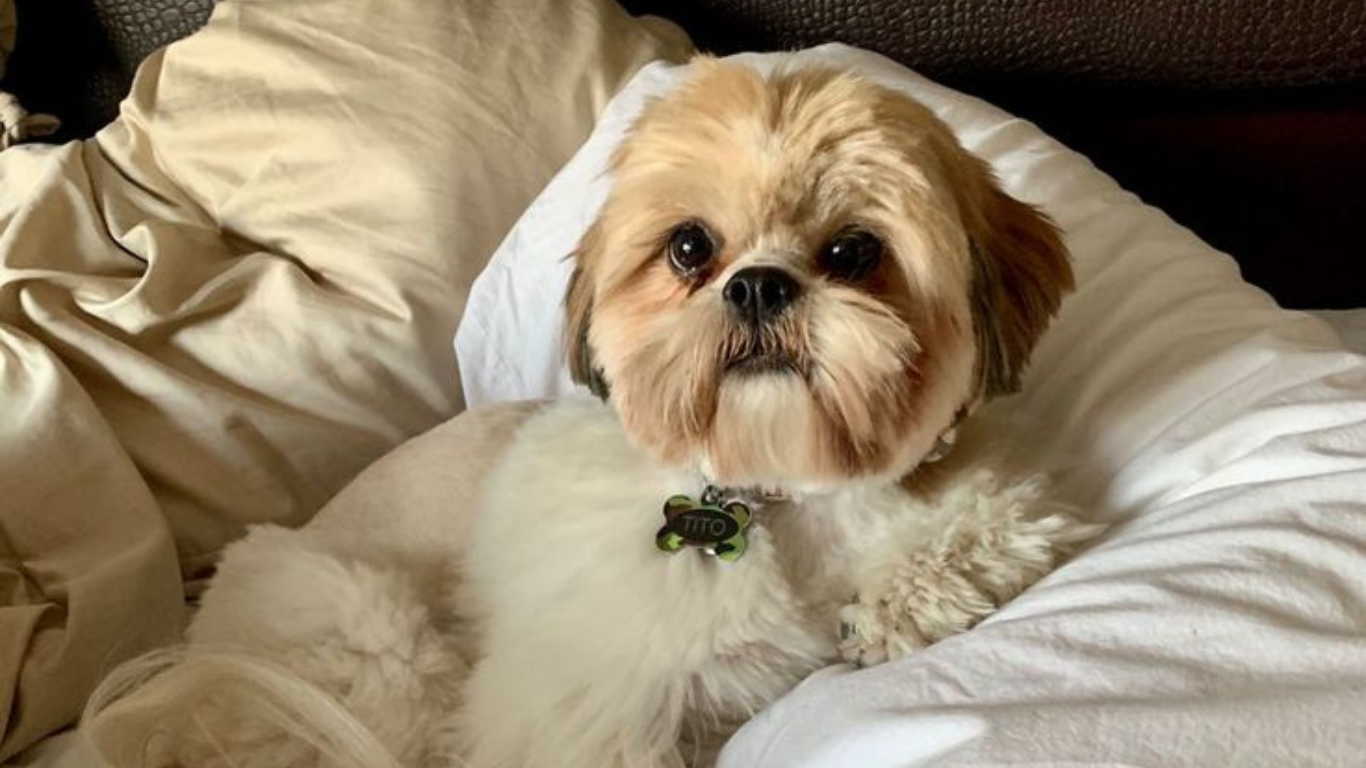The Shih Tzu, an affectionate, happy, outgoing breed of a house dog, is one of the most lovable pets to keep. They love nothing more than to follow their people from room to room on their tiny feet.
However, these adorable traits come combined with crooked teeth, termed underbite. It is a peculiar trait that is common to all Shih Tzus. Let’s delve deeper into what causes this unique trait to appear in this breed.
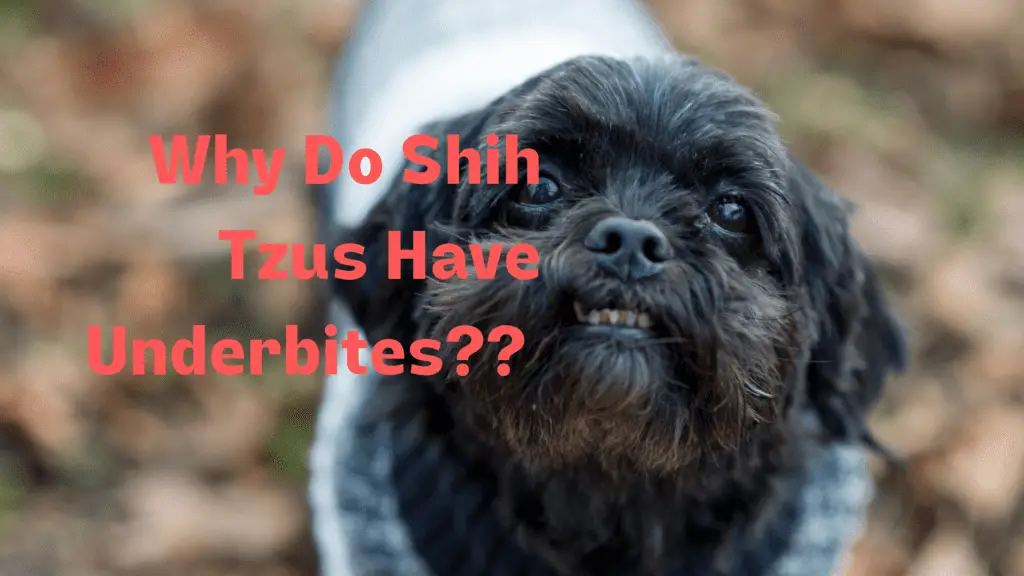
Why Do Shih Tzus Have Underbites?
Generally, the most commonly accepted reason why the Shih Tzu portrays an underbite is due to the compression of the muzzle. Interestingly, this trait was bred into the Shih Tzu and other brachycephalic breeds on purpose!
An underbite is not an out-of-the-blue occurrence.
The Shih Tzu has been crowned with the title of the most common breed to suffer from, and here is why.
It can be identified by seeing if your dog’s teeth fit together accurately.
So there is a high probability you will witness almost every breed with an underbite, such as:
- Boxer
- Boston terrier
- Brussel Griffon
- Bulldog
- Lhasa Apso
- Shih Tzu
- Pug
Underbites Guide
The telltale indication of a Shih Tzu with an underbite would be that their upper jaw is uncharacteristically smaller than the lower one. It can be a source of intense pain for your Shih Tzu and can result in a nasal disease.
This condition can make mundane everyday tasks we take for granted unbearable for a Shih Tzu.
It makes it challenging for our small puppies to eat and breathe peacefully.
While also gives rise to dental concerns like tooth decay and periodontal disease, a gum infection. It results in crowding among the teeth. The end outcomes are the abnormal position and underbite look in your dog. However, this source of underbite on dogs is the simplest to rectify.
We can pitch the various reasons for an underbite against one another. The findings show that a skeletal underbite in dogs may be more troublesome than a dental one. A skeletal defect may give rise to an abrupt occurrence of periodontal disease.
You must be wondering by now why it is that an underbite affects only short-faced breeds like Bulldogs, Shih Tzus, and Boxers. Stay with us to know how we may have a chance at rectifying the shape of these skulls to ease their comfort.
Shih Tzu Dog Overbite Characteristics
Reversing the condition of an underbite can be equally uncomfortable for a dog. An overbite can be termed as the polar opposite of an underbite. It is when the lower jaw is unusually shorter than the upper jaw.
An overbite is a unique occurrence in a Shih Tzu and is ordinarily the outcome of genetics as well. However, a few other causes of this condition could be dental problems, injuries, and infections. As a dog owner, keep a vigilant eye on your dog to ensure that they are spending happy as well as comfortable days with you.
As research into the matter extended, we have developed multiple names for this condition. These include overshot jaw, overjet, parrot mouth, class 2 malocclusion, or mandibular brachynathism. The primary meaning is the same – a dog with teeth that are not lined up properly.
Develop a hygiene regimen for your dog. Using dog-specific products is essential to provide your Shih Tzu with all the benefits of this routine. It will stop them from consuming chemicals that may be upsetting for their stomachs.
The approach toward aiding this condition is still in the experimental phase. There is a persistent discourse going on about the advantages of the surgical options for amending the facial construction of a Shih Tzu.
This endeavor is undertaken to enhance the quality of a Shih Tzu’s life. Improving their health can be reassuring to a dog owners as they can expect to see their puppy grow into a healthy dog adult. We do not have to predominantly judge this breed’s overbite as a definitively negative characteristic.
Is Shih Tzu Underbite Normal?
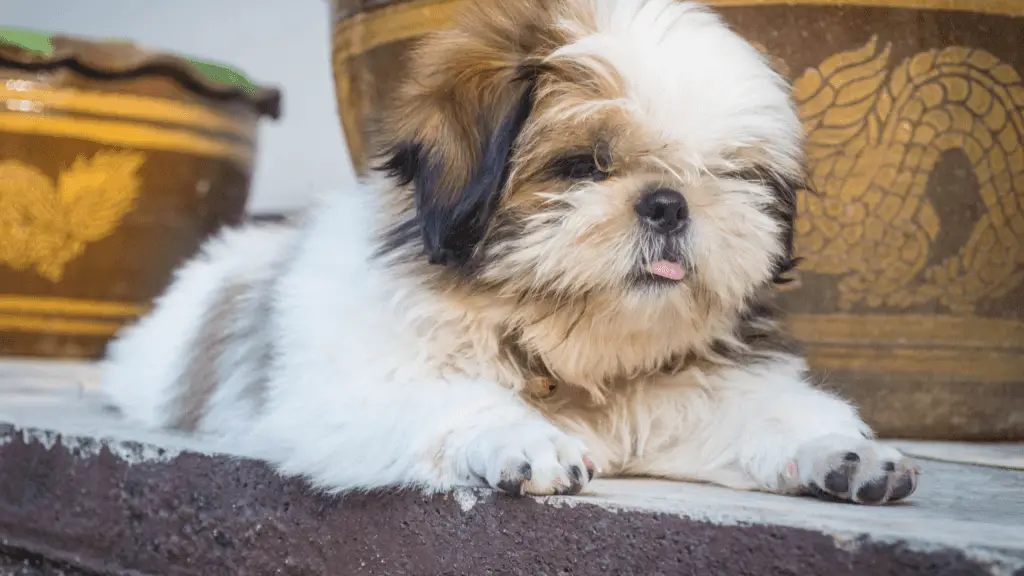
At the crux of it, it is not alarming if your dog has an underbite; it is definitely not a “bad thing .”Although, with time, this condition can deteriorate and become a concern.
Basically, what happens is over time, the teeth of your Shih Tzu will become bigger in size as they grow older. An underbite is the outcome of abnormal bone or soft tissue growth during puppyhood.
It will ultimately be injurious to the softer areas of their mouths. It will result in issues that include:
- Struggling with chewing and eating
- Growing tooth decay
- Certain nasal diseases
- Having bad breath
To put your mind at ease, please know it is perfectly safe to own a Shih Tzu puppy with an underbite. If you do your homework and understand their condition, you will have a furry little friend for life.
Even though an underbite is an ordinary occurrence in smaller or other purebred dog breeds, there is a higher probability of a dog catching an infection if they have an underbite; the overall risk factor is higher in this scenario. If your Shih Tzu can chew their good with ease, there is nothing to worry about.
There is a high chance you will often come across a Shih Tzu that has its lower teeth exposed. The underbite will cause the upper jaw to be shorter than the lower jaw, so this happens even when the mouth is closed.
This condition’s indications may be visible daily when you are with your dog. Your dog may seem pretty cute with its little mouth chewing or yawning. However, if you look closely enough, there could be signs of an underbite developing.
How To Fix Shih Tzu Underbite?
If left untreated, an underbite can be the cause of utmost discomfort for your dog. An extremely significant point that we often fail to consider is the health risk that this characteristic poses. There have been quite a few cases where an underbite has resulted in an oronasal fistula. It is a state where a hole appears between the mouth and nose.
Using braces has proven to be one of the most effective treatments for underbites in a puppy. More advanced treatment options include extraction and filling to be applied.
The decision for a particular recovery option is based on the type of malocclusion the dog is going through. All of them collectively play a part in how well the treatment will respond to the condition.
If you are in any way worried about how this condition might negatively impact your dog’s health. The ideal and safer option is to always consult with a veterinarian.
Their practical expertise is indispensable when it comes to managing a health condition. Discussing your concerns with them will help relieve them as you become well-versed in the intricate details of your little friend’s condition.
You can actually tell very early on if your Shih Tzu puppy might have the tendency to develop an underbite! An irregular growth pattern for the jaw can become evident at a young age for a Shih Tzu. An uneven jaw can be seen when your puppy is just eight weeks old.
You need to be on the lookout for the lower jaw sticking out along with disordered teeth. Before purchasing a Shih Tzu, you can also look into the dog’s parents. If they also had underbites, likely, your pup will too.
What Can You Do To Help Prevent An Underbite?
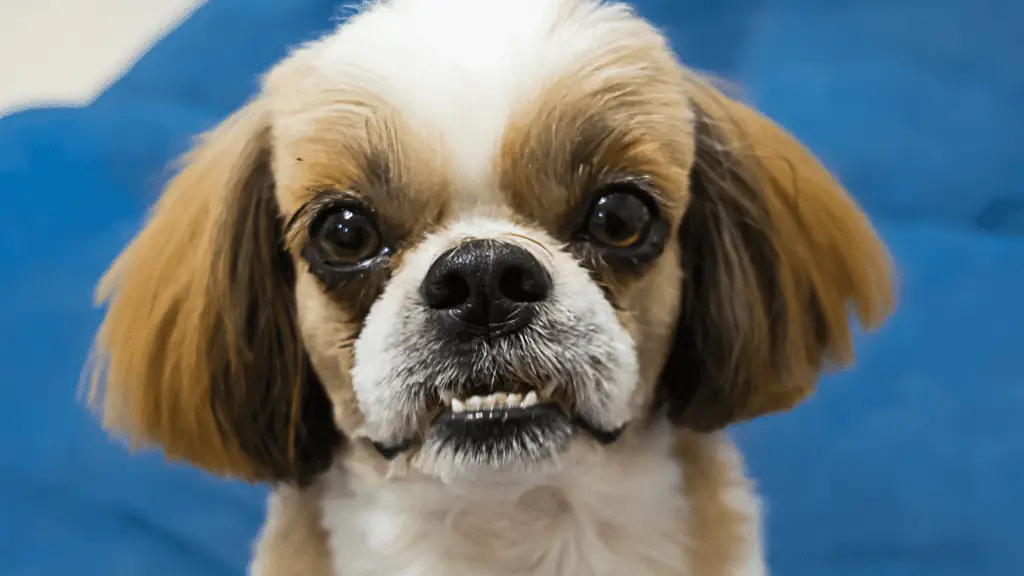
As our parents always reminded us, having a pet is a huge responsibility. So as a dog owner making an effort to make your pet’s life peaceful is something you have to do.
Primarily, ensure that you are consistent with a basic health care routine for your Shih Tzu. It includes brushing their teeth regularly. When a dog has their teeth cleaned thoroughly every day, there will be no plaque buildup, and they also avoid gum diseases.
Also, schedule regular visits to the veterinarian. There is always a chance that an implicit factor might be upsetting the alignment of your dog’s teeth. It will open the pathway to other problems, such as tooth decay.
- Get rid of any kind of food particles from the teeth and the gums after your dog is done eating.
- Be consistent with brushing your dog’s teeth on a daily basis. It may sound like a no-brainer, but it is a crucial step in ensuring your dog stays fit.
- NEVER USE A HUMAN TOOTHPASTE FOR YOUR SHIH TZU! Find a toothpaste that has fluoride as a significant component in it. Pair it with a soft-bristled toothpaste, maybe an electric toothbrush for your pup if they trouble you with oral care.
Perhaps a disclaimer is applicable here when you decide to buy a Shih Tzu who has an underbite. An individual has to be mindful that in the dog’s lifetime, there is a high chance of an underbite developing. If it does, it can potentially create medical issues that tend to be heavy on the pocket.
Why Does My Shih Tzu Have An Underbite?
To quote Sri Chinmoy, “Ignorance is an enemy, even to its owner.” Even though it is valuable to know how to identify an underbite and its subsequent treatment, in its essence, we can attribute the cause of an underbite mostly as being congenital. The Canine Malocclusion (or an underbite) is a feature that has been evident since birth.
Dental in nature is the leading cause of your dog’s underbite. It occurs when a baby’s tooth is unable to fall out and is still there when a permanent tooth comes in.
Being aware of the cause of any condition is absolutely invaluable. The correct treatment will only be sought when we know exactly what requires it.
Knowing the cause of an underbite will help us prepare prior to when it begins creating problems for your dog. You can arm yourself with the power of identifying the issues in advance. Some of the factors due to which this condition originates in dogs comprise:
- Skeletal Concerns
- Genetics and Breeding Details
- Trauma to the jaw or mouth (at a young age)
- An accident whereby the jaw fractures did not heal properly.
The core factor attributing to an underbite is the genetics of a dog. To make it easier for you to keep a check on your beloved Shih Tzu, here is a valuable piece of information.
Trauma to the face and jaw can play a significant role in causing underbites. Severe bites or getting hit by a car can contribute to your dog developing an underbite. It is essential to keep your Shih Tzu safe from such events as this slight oversight may result in immense discomfort and pain for them later.
Conclusion
This unique trait of Shih Tzus lends an eccentric flair to their personalities. The underbite seems to align with their lovable charm. Although we have to be cognizant of the health concerns of underbites, they can sometimes plainly be cosmetic issues and nothing more.
You may think there is a big smile on your pup’s face. It is a sign of their mouth being in extreme discomfort. As a responsible dog owner, you are accountable for identifying the state of unrest your pet may be in.
Every dog owner can relate to dealing with the boundless energy that our furry friends possess. It is why we often see cases of dogs running out onto the street and facing accidents.
If you feel you may not be prepared to take on the responsibility of such concerns, either emotionally or it can also be financially. Maybe you reconsider the type of pet you want, as adopting a dog who has an underbite is not the best option for you.
If you already are a proud owner of a Shih Tzu or deliberating on whether you should get one, make sure to do your due diligence. Ensure that you ultimately realize what an underbite may mean for a dog and your responsibility in providing appropriate care for them.
At the end of the day, remember an underbite is relatively harmless unless a complication arises.



